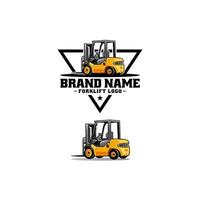How Forklift Manufacturers Are Leading the Charge in Automation
How Forklift Manufacturers Are Leading the Charge in Automation
Blog Article

In today's fast-paced industrial landscape, the role of automation is becoming increasingly paramount. As businesses strive for greater efficiency and productivity, forklift manufacturers are at the forefront of this technological revolution. These companies are not just producing equipment; they are innovating and transforming the way material handling is approached across various sectors. By integrating advanced technologies such as artificial intelligence, robotics, and IoT, forklift manufacturers are leading the charge in creating smarter, safer, and more efficient warehouse environments.
The evolution of forklifts from simple mechanical machines to highly automated systems is a testament to the industry's commitment to progress. Modern forklifts now feature sophisticated automation capabilities that enhance their functionality, reduce operational costs, and minimize human error. This transition is not only reshaping the logistics and supply chain sectors but also setting new standards for safety and productivity in workplaces around the globe. As these manufacturers continue to innovate, they are paving the way for a more automated future in material handling.
Innovations in Forklift Automation
Forklift manufacturers are at the forefront of integrating automation into warehouse and logistics environments. The latest innovations include advanced sensors and machine learning systems that enable forklifts to navigate complex spaces without human intervention. This level of automation not only enhances efficiency but also significantly reduces the chances of accidents, leading to safer working conditions.
Another remarkable innovation is the development of autonomous forklifts that can operate in real-time, responding to changes in their surroundings. Equipped with state-of-the-art navigation technology, these forklifts can identify obstacles, calculate optimal routes, and adjust their operations accordingly. This adaptability allows for continuous workflow improvements, effectively increasing overall productivity within facilities.
Furthermore, forklift manufacturers are leveraging the Internet of Things to facilitate better communication between forklifts and other equipment in the supply chain. By connecting forklifts to a central system, operators can monitor performance and identify areas for improvement. This real-time data collection is crucial for making informed decisions, ultimately leading to a more streamlined and efficient logistics process.
Benefits of Automated Forklift Systems
Automated forklift systems offer numerous advantages that significantly enhance operational efficiency in warehouses and manufacturing facilities. One of the most prominent benefits is the ability to reduce labor costs. With automation, companies can streamline their operations, which minimizes the need for manual handling and allows staff to focus on more strategic tasks that require human oversight. This not only cuts down on wage expenses but also helps in reallocating resources to areas that can drive growth and innovation.
In addition to cost savings, automated forklifts improve safety in the workplace. Human error is a leading cause of accidents in warehouses. By utilizing automated systems, the risks associated with human operation are greatly diminished. These forklifts are equipped with advanced sensors and technologies that allow them to navigate their environment safely, avoiding collisions and ensuring that goods are handled with care. This heightened safety translates into fewer injuries and reduced liability for businesses.
Finally, automated forklift systems enhance productivity by increasing speed and efficiency in material handling. These machines can operate continuously without fatigue, enabling them to complete tasks at a much faster pace than manual operations. This accelerated workflow not only meets the high demands of modern logistics but also provides businesses with a competitive edge. As a result, companies leveraging automated forklifts can respond more quickly to inventory needs and market changes, leading to improved customer satisfaction.
Meenyon Electric Pallet Truck
The Future of Forklift Manufacturing
As the demand for automation in logistics and warehousing grows, forklift manufacturers are at the forefront of this transformation. They are increasingly developing advanced technologies that enhance the functionality and safety of forklifts. This includes the integration of artificial intelligence and machine learning to optimize operations, increase efficiency, and reduce human error. The vision for the future is a landscape of smarter, more autonomous forklifts that can navigate complex warehouse environments with minimal human intervention.
Moreover, sustainability is becoming a key focus within the forklift manufacturing industry. Manufacturers are innovating to produce electric and hybrid forklifts that reduce emissions and energy consumption. The push for greener solutions reflects a broader commitment to environmental responsibility and is expected to influence buying decisions among consumers and businesses. This shift not only benefits the planet but also offers operational savings for companies embracing these technologies.
In the coming years, we can expect more collaboration between forklift manufacturers and technology companies to create integrated systems that enhance supply chain efficiency. These partnerships will drive the development of solutions that combine robotics, software, and data analytics. The evolution of forklift manufacturing will thus continue to shape the logistics and material handling sectors, ensuring that they meet the challenges of a rapidly changing marketplace.
Report this page